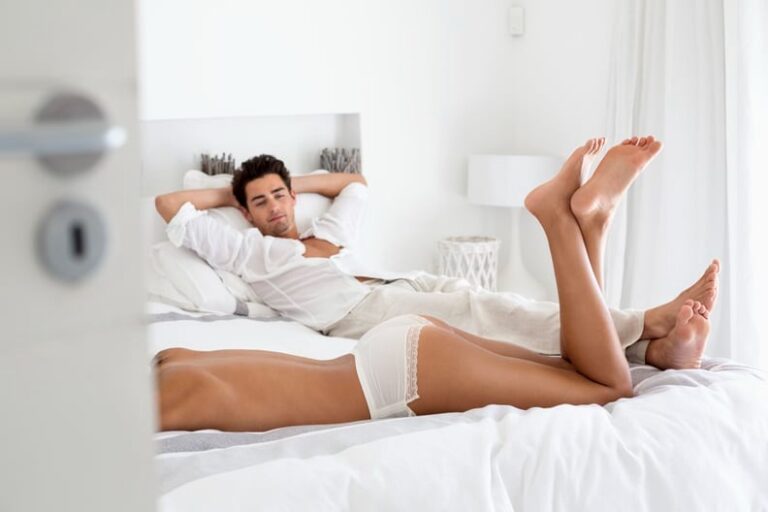Today many former and current professional athletes in various sports support the use of commonly known CBD, a cannabinoid growing naturally in cannabis plants. CBD is one of more than 100 natural cannabinoids in the cannabis sativa plants. Though there is no huge research on CBD, it shows promise to manage several conditions like joint pain, inflammation, and muscle soreness associated with athletic competition.
Know the unique role of CBD oil for athletes, how to enjoy the benefits of CBD oil for athletes, and how to find the best CBD oil for pain and inflammation to ultimately decide whether you should use CBD as an athlete.
Is CBD legal for athletes?

The answer is yes, as CBD is legal for normal consumption in all 50 states of the US if the content of THC is less than 0.3%. Similarly, in most states of the European Union, the consumption of CBD is legal when the product contains less than 0.3% THC. The World Anti-Doping Agency (WADA) removed CBD from the list of prohibited substances in early 2018, both in and out of competition. In addition to doing the same, the US Anti-Doping Agency (USADA) provided a “Marijuana FAQ” page for people to clarify the rules. The important caveat is that only CBD was removed from the prohibited list, while THC, the psychoactive element of marijuana, is still prohibited in any competition, as it is a synthetic cannabinoid.
How Does CBD Oil Work for Athletes?

If you want to know how CBD works for athletes, you should first know about the endocannabinoid system or ECS and its link with cannabinoids. Cannabinoid receptors, neurotransmitters, and enzymes located across your body are integrated by the ECS. They are available in every organ system regulating different biological processes, including:
- Immune reaction
- Appetite
- Perception of pain
- Fear and pleasure sensations
- The temperature of the body
- The cycle of sleep and wakefulness
- Regulation of cellular energy
- Reproduction
The ECS maintains the body’s optimal balance (homeostasis), allowing the system to work harmoniously and keep a person healthy.
The athletes find it difficult normally to get substantial 8 hours of sleep. CBD can prevent insomnia and induces sound sleep. 2019 research indicates that CBD is effective for anxiety and enhances sleep. In addition, cannabis can fix broken bones and makes healing faster.
7 Benefits of CBD Oil for Athletes
Here’s how you can enjoy the benefits of CBD oil as an athlete-
1. Relieve Pain

Studies and research have demonstrated that cannabis is effective for relieving pain, including musculoskeletal (relating to the muscles and skeleton, including bones, joints, tendons, and muscles) and stiff joint pain from exercise. But most of them are of THC and far less CBD. Little research has been found yet on CBD alone or a 1:1 ratio of THC to CBD. In this area, anecdotal evidence and biological probability are the best for you until research catches up. According to studies, CBD does appear to relieve pain effectively for many athletes.
According to Dmagazine.com, if you want to use the CBD oil for pain, you should look into the causes of pain and how CBD oil can help to soothe and manage acute and chronic pain.
2. CBD for Athletic Recovery
CBD not only relieves pain but also can reduce the release of cortisol through physical activity. The stress hormone-producing adrenal system regulates the body’s response to physical stressors, like exercises. The adrenal glands start producing more cortisol in the bloodstream when a person is engaged in physical activity.
According to a small study by the Department of Neuropsychiatry and Medical Psychology at the University of Brazil, CBD lessens the secretion of cortisol and thereby reduces its concentration in the blood, causing a positive effect on athletic recovery, making CBD the holy grail of post-workout supplements.
3. Reduce inflammation
Inflammation is painful and suffering, but a little bit of inflammation can be good for athletes to help promote positive training adjustments. However, too much inflammation certainly inhibits recovery and hurts performance. Any reduction in inflammation can help relieve the discomfort of typical muscle soreness after a hard workout and injuries.
Although CB2 receptors exist in both the brain and periphery, they are more potent in immune tissues. Binding to CB2 receptors, CBD may create an anti-inflammatory effect by decreasing cytokine (cell messengers) production. Thus, binding to CB2 receptors, cannabinoids help dial down the response after your immune system sounds the alarm after hard workouts. You can get enough evidence from studies to support that CBD can help reduce pain and inflammation.
4. CBD for Pre-workout

Since CBD can relieve tension, stress and anxiety, it amplifies workouts by easing anxiety symptoms and helping your body feel comfortable and relaxed.
Nowadays, you will find many athletes to be using CBD as a pre-workout supplement. As a professional athlete, you want to avoid any potential issues with banned substances. So you should purchase CBD pre-workout products tested by the Banned Substances Control Group.
5. CBD for Appetite Control
By regulating ECS activities, CBD can help athletes control their appetite. CBD will help you lose body fat more efficiently by inducing feelings of relaxation and reducing cravings. Unlike THC, CBD is considered a mild appetite suppressant. CBD can modulate problems with compulsive eating by acting on the GABA-A receptor, a handbrake for the brain while overexcited.
CBD oil can improve the marker of those with low insulin sensitivity by providing extra space for glucose and glycogen storage in the muscle and liver. You can also get from studies that cannabinoids contribute to lower rates of abdominal obesity and smaller waist circumferences in regular cannabis users compared with the general population.
6. CBD for Anxiety

You can find a large body of research and human clinical trials on CBD’s efficacy for anxiety disorders. Like other people under regular stress, athletes also suffer from recurring periods of anxiety, possibly caused by peer pressure, pre-game concerns, or injuries.
You can see from the scientific literature how CBD oil can help relieve anxiety in patients with a social anxiety disorder and also lessen the severity of traumatic memories, a signature symptom of Post-Traumatic Stress Disorder (PTSD). Oral administration of CBD leads to a decline in anxiety levels in subjects before giving a public speech, research has found, last but not least.
Considering all the above discussion, we can believe in CBD’s ability to reduce anxiety and fear, especially on the eve of professional sports.
7. Improve Sleep Quality
To achieve greater training gains for an athlete, getting better and more sound sleep is one of the most effective ways. Anecdotally, the report says that athletes consuming CBD can have greater comfortable and a more restful night’s sleep. CBD inhibiting the reuptake of adenosine could be one potential reason for that sleep.
How to Use CBD Oil

CBD oil has various uses. You can use topical creams and lotions containing CBD oil. CBD topical products are ideal for providing localized benefits. CBD tinctures or drops are also CBD oil products. Oils and tinctures are made for sublingual intake. You need to apply a few drops of concentrated CBD oil under the tongue using a dropper. From there, the CBD compound will find its way into the bloodstream via the blood vessels.
How Much CBD Oil to Take?
There is no standard dose for CBD, like there is for the majority of supplements. The dose is affected by a wide range of variables as well. Weight, age, metabolism, heredity, the severity of the condition, and other factors fall under this category.
Studies have shown that humans may consume up to 1,500 mg per day. However, between 10 mg and 20 mg per day should be the recommended starting dose. This makes consuming CBD more comfortable by giving your body time to adapt. If that range is insufficient for you, you should slowly raise your dosage. This might range from 2 to 5 mg every week. Do this often until you discover the dose that is effective for you. Recognize that excessively high CBD dosages may have unwanted side effects.
Best Type of CBD for Athletes
Broad-spectrum CBD products can be the best of both worlds of CBD for athletes since a quality broad-spectrum CBD product typically contains rare cannabinoids but is free of THC.
Athletes and sports enthusiasts will find various CBD products, including CBD topicals, CBD gummies, CBD oils and tinctures and CBD drinks and shots.
Summary

The beginning of the CBD era might indicate a watershed moment in which athletes manage acute and chronic pain and recover from training stress.
But CBD’s usage and delivery methods are still ahead of science. Many things are yet to know about CBD and its influence on athletes. Initial research points out that CBD is worth more exploration. If you desire to try CBD, talk to your doctor first.
Related Posts:
- 20 Best Gaming Headset Under 50$ 2024 - for PC, PS4,…
- 15 Best Dog Food For Allergies 2024 - Adult, Puppy…
- Top 10 Best Outdoor Basketball Shoes 2024 - Durable…
- 15 Best Shoes for Walking on Concrete 2024 - Soft &…
- 12 Best Car Wax For Black Cars 2024 - Protection and…
- 15 Best Shoes for Jumping Rope 2024 - Maintain a…







